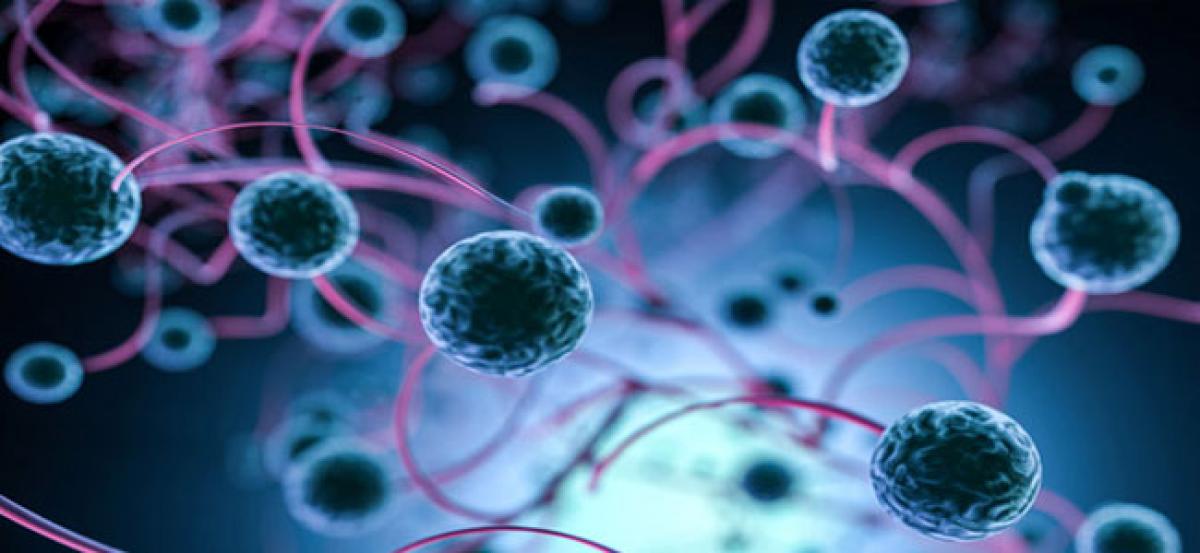Live
- Six Useful Strategies to Control Your Heart During the Pollution Season
- Phalodi Satta Bazar Predicts Close Race in Maharashtra Assembly Election 2024
- Federer Pays Heartfelt Tribute to Nadal Ahead of His Retirement: "An Epic Career"
- Odisha holds successful mega investors roadshow in Singapore
- PGTI Tour: Top stars to fight for honours in Servo Masters Golf
- SC upholds termination of LIC employee for absenting himself without intimation
- ‘Stone me or shoot me, won’t spare anyone,’ says Anil Deshmukh after discharge
- Siddaramaiah, Shivakumar turning Karnataka into Pakistan: K’taka BJP
- Zimbabwe records 70 suspected cholera cases, one death amid new outbreak
- Babri demolition day: No Assembly proceedings in Bengal on Dec 6
Just In

The US biologists found that a 24-hour fast can reverse the age-related loss of intestinal stem cell function that can regenerate new intestinal cells.The study, published on Thursday in the journal Cell Stem Cell, revealed that fasting dramatically improves stem cells\' ability to regenerate, in both aged and young mice, Xinhua reported.
Washington : The US biologists found that a 24-hour fast can reverse the age-related loss of intestinal stem cell function that can regenerate new intestinal cells.The study, published on Thursday in the journal Cell Stem Cell, revealed that fasting dramatically improves stem cells' ability to regenerate, in both aged and young mice, Xinhua reported.
In fasting mice, cells begin breaking down fatty acids instead of glucose, a change that stimulates the stem cells to become more regenerative.The researchers found that they could also boost regeneration with a molecule that activates the same metabolic switch and such an intervention could potentially help older people recovering from gastrointestinal infections or cancer patients undergoing chemotherapy.
"Fasting has many effects in the intestine, which include boosting regeneration as well as potential uses in any type of ailment that impinges on the intestine, such as infections or cancers," said Omer Yilmaz, an assistant professor of biology in Massachusetts Institute of Technology (MIT), and one of the senior authors of the study.
"This study provided evidence that fasting induces a metabolic switch in the intestinal stem cells, from utilizing carbohydrates to burning fat," said David Sabatini, an MIT professor of biology and the paper's another senior author.
"Interestingly, switching these cells to fatty acid oxidation enhanced their function significantly. Pharmacological targeting of this pathway may provide a therapeutic opportunity to improve tissue homeostasis in age-associated pathologies."
Intestinal stem cells are responsible for maintaining the lining of the intestine, which typically renews itself every five days. When an injury or infection occurs, stem cells are key to repairing any damage.
However as people age, the regenerative abilities of these intestinal stem cells decline, so it takes longer for the intestine to recover.
After mice fasted for 24 hours, the researchers removed intestinal stem cells and grew them in a culture dish, allowing them to determine whether the cells can give rise to "mini-intestines" known as organoids.The researchers found that stem cells from the fasting mice doubled their regenerative capacity.
The researchers sequenced the messenger RNA of stem cells from the mice that fasted, and revealed that fasting induces cells to switch from their usual metabolism, which burns carbohydrates such as sugars, to metabolizing fatty acids.
This switch occurs through the activation of transcription factors called PPARs, which turn on many genes that are involved in metabolizing fatty acids, according to the researchers.
The researchers found that if they turned off this pathway, fasting could no longer boost regeneration and they could reproduce the beneficial effects of fasting by treating mice with a molecule that mimics the effects of PPARs.The findings suggest that drug treatment could stimulate regeneration without requiring patients to fast, which is difficult for most people.
One group that could benefit from such treatment is cancer patients who are receiving chemotherapy, which often harms intestinal cells.It could also benefit older people who experience intestinal infections or other gastrointestinal disorders that can damage the lining of the intestine.

© 2024 Hyderabad Media House Limited/The Hans India. All rights reserved. Powered by hocalwire.com







